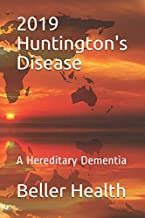Huntington’s Disease
Huntington’s disease (HD) is a fatal genetic disorder that causes the progressive breakdown of nerve cells in the brain. It deteriorates a person’s physical and mental abilities usually during their prime working years and has no cure.
Cluster Number:
Wiki Number: W096
Diagnosis: Huntington’s Disease
US Patients:
World Patients:
Sex Ratio:
Age Onset: 30-50 years; The patient ultimately dies from the disease.
Brain Area: striatum (center)is affected first; then effects move out to damage other areas; caudate nucleus & putamen-brain center.
Symptoms: unsteady walking & lack of coordination. “chorea” = jerky, uncontrollable movements; saccadic (darting) eye movements
Progression: unable to talk; loss of decision-making and memory=lead to dementia; suicidal thoughts
Causes: gene from a parent, but 10% are new mutation; the mutant damages brain cells; genes do not skip generations.
Medications:
Therapies: stem-cells to replace lost neurons; Huntington’s is too complex to explain fairly here. It is both awful and fatal in the end.
Youtube Video:
Huntington’s Disease Treatment
Youtube Video: Living with Juvenile Huntington’s Disease
Amazon or Library Book: 2019 Huntington’s Disease
Click the book to link or order from Amazon.

